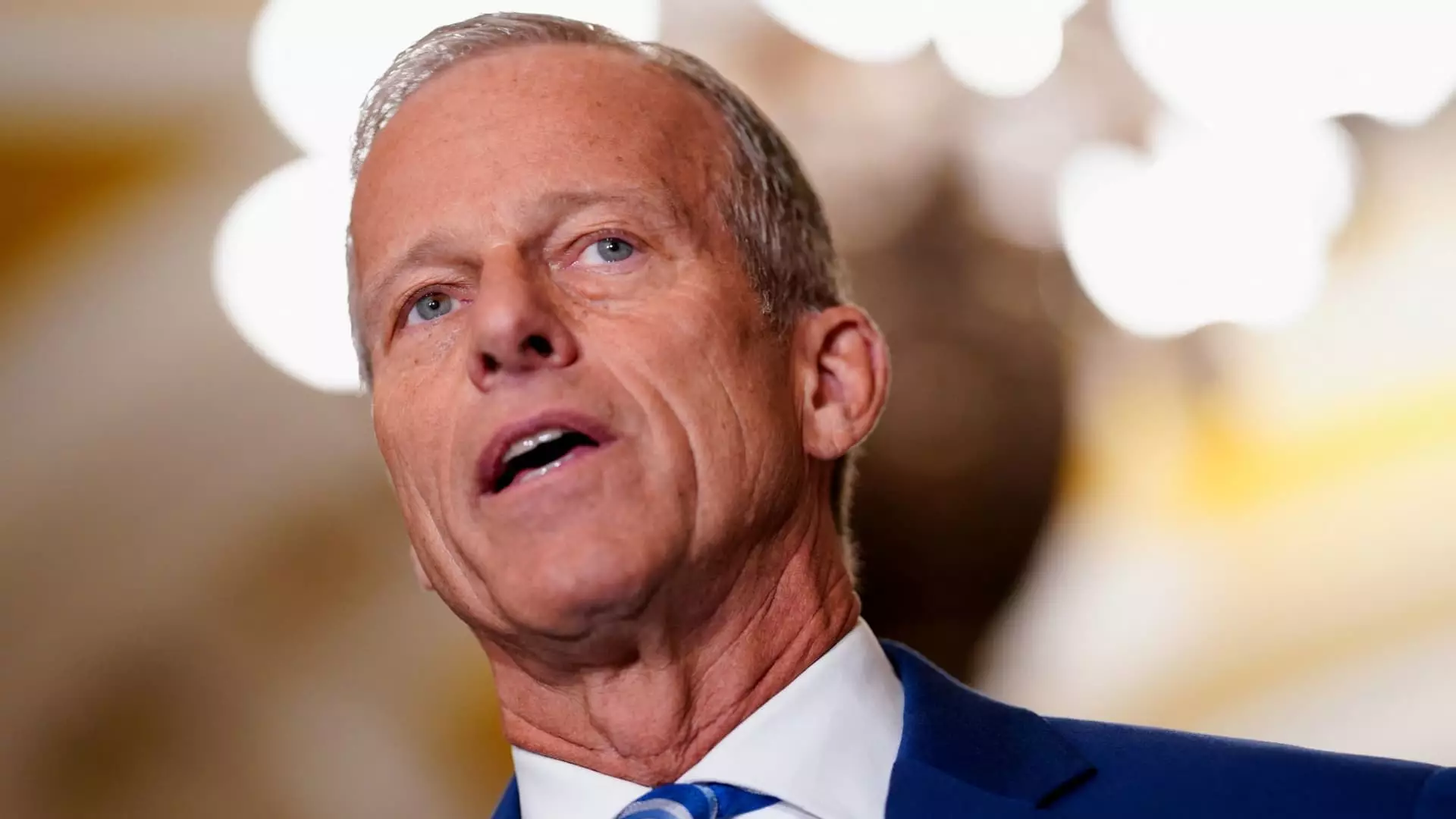The recent procedural win for President Donald Trump’s sprawling spending bill signals more than just legislative progress; it exposes a fractured Republican Party struggling with its identity and priorities. Passing the motion to proceed with a razor-thin 51-49 margin after hours of delay and back-and-forth underscores the fragility of what some Republicans market as a “big, beautiful bill.” This is not a unified march toward conservative policy triumph, but a fraught negotiation that reflects deep internal dissent and widespread skepticism, even among GOP ranks. The fact that five previously resistant Republican senators changed course to secure the vote defies any notion of genuine consensus. Rather, it points to last-minute capitulation under political pressure—a tactic that can only fuel future instability.
The Cost of Narrow Majorities and Pervasive Discord
The Republicans’ slim majorities in both the Senate and House paradoxically serve as both a source of empowerment and crippling vulnerability. Leaders like Senate Majority Leader John Thune and House Speaker Mike Johnson are tasked with shepherding this mammoth 940-page bill through chambers rife with discord—as evidenced by the near-unanimous Democratic opposition and significant Republican hesitance. The Senate vote’s close call foreshadows even more contentious battles ahead, especially in the House, where opposition to controversial cuts to Medicaid and other social programs has already crystallized. The party’s reliance on nearly every member to vote lockstep just to pass this bill reveals not strength, but a dangerously narrow margin for error that can derail legislative aims at any moment.
Democrats’ Tactical Resistance and Institutional Integrity
The Senate Democrats, led by Minority Leader Chuck Schumer, have weaponized procedural tools effectively, insisting on reading each page of the gargantuan bill aloud during debate. This move is more than obstructionist theater; it is a pointed critique of the hasty and opaque manner in which such sprawling legislation is pushed through Congress. Their stance highlights a critical concern about transparency and accountability—or the lack thereof—in Washington’s current legislative process. The refusal to rubber-stamp the bill without scrutiny reminds us that safeguarding democratic deliberation matters, especially when the content of the bill impacts the healthcare and welfare of millions.
The Illusion of Deadline-Driven Governance
Trump’s push for a July 4 deadline to enshrine the bill into law feeds a problematic cycle of deadline-driven politics, where the urgency to meet self-imposed targets trumps thoughtful policy debate. The White House’s framing of failure as a “betrayal” reflects an unhealthy politicization and simplification of governance. This urgency coerces vulnerable lawmakers into rushed voting decisions without fully grappling with the bill’s far-reaching implications. It also distorts public perception, turning legislative compromise into political drama rather than a sober assessment of complex policy trade-offs. In this way, Trump’s pressure tactics undermine democratic norms by substituting performative brinkmanship for reasoned policy-making.
The Real Stakes: Ideological Battles Over Social Safety Nets
At the heart of the bill’s controversy lies its profound approach to social welfare—especially the proposed deep Medicaid cuts. These cuts signal a stark pivot away from inclusive safety net policies, risking widespread harm to vulnerable populations. The fierce objection from both Democrats and some Republicans within the GOP ranks indicates a profound ideological split, not simply about budgetary prudence but about the country’s social contract. It’s a contest over America’s values: whether to uphold basic social protections or prioritize austerity and limited government spending at the expense of millions who rely on these programs. The Republican guilement gaze through the tension surrounding Medicaid eloquently reveals the party’s growing internal divide on the role of government in citizens’ lives.
A Prelude to More Turmoil, Not Resolution
Far from a definitive win, this procedural vote represents the opening chapter of a contentious saga. The deep divisions exposed—within and across parties—suggest that the bill’s ultimate fate is far from sealed. Narrow party margins, fierce ideological battles over social programs, strategic Democratic resistance, and the precarious nature of last-minute Republican unity all coalesce to paint a picture of legislative chaos rather than coherent governance. The rushed timeline and political brinkmanship only aggravate this instability. For all its grandeur and promises, Trump’s “big, beautiful bill” risks becoming yet another emblem of political dysfunction, raising the question of whether partisan posturing can ever truly serve the nation’s best interests.


Leave a Reply